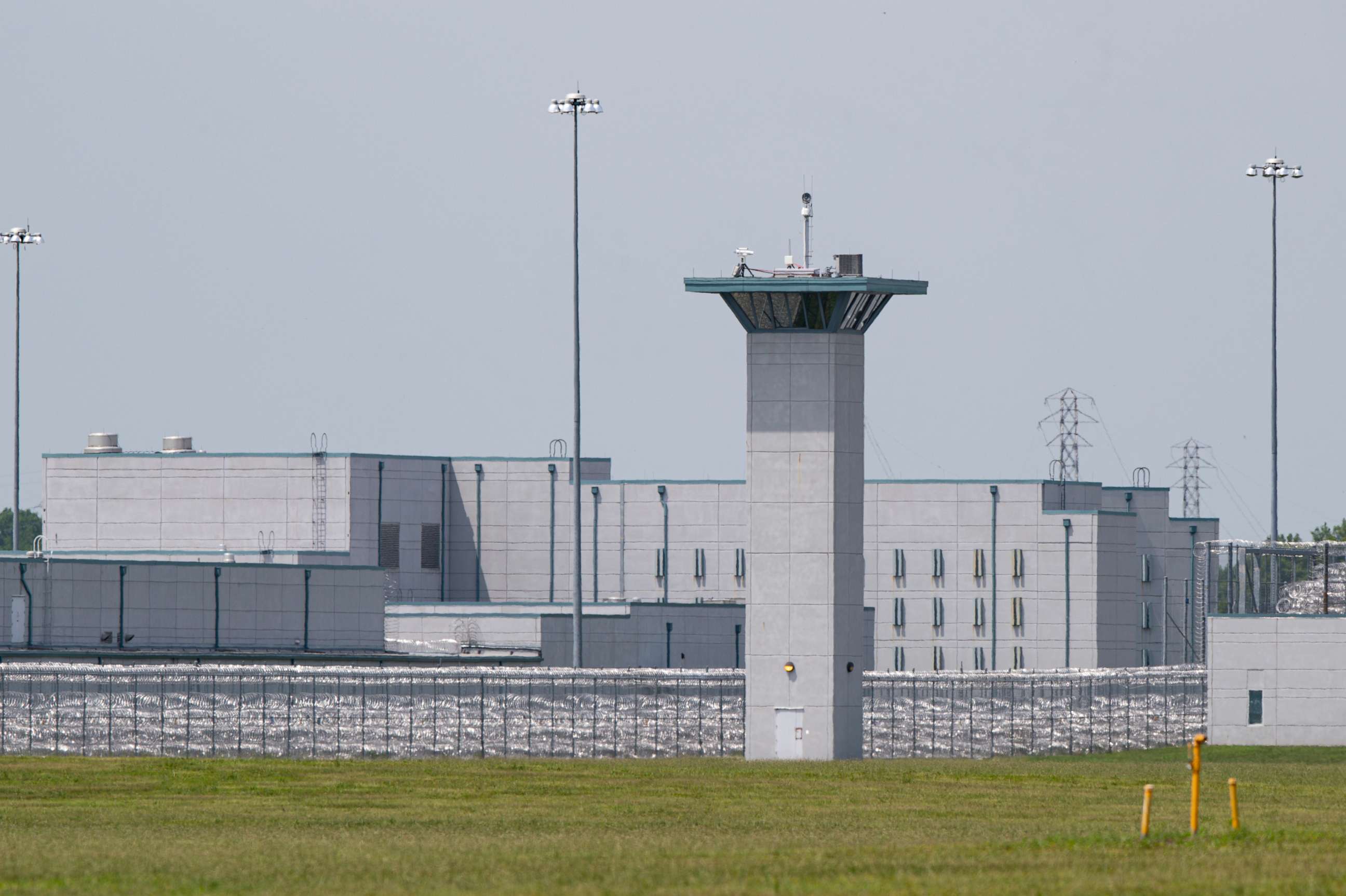Union officials warn of 'dire' situations at South Florida federal prisons
The Federal Bureau of Prisons has been a COVID-19 hotspot.
As Florida has become the new COVID-19 hotspot, federal prisons in South Florida are feeling the brunt of COVID-19.
Union officials at Federal Correctional Complex Coleman and Federal Correctional Institution Miami sounded the alarm on just how bad the conditions are inside the facilities.
Kareen Troitino, the FCI Miami corrections officer union president, told ABC News that the virus was spread by one employee to inmates at the facility and, within a day, Troitino said that cases at the facility went from one to four.
A few days later, Troitino said there was an “enormous spike” in three of the units at the facility.
“Inmates complaining of extreme fatigue. Cold like symptoms. Strange headaches, they've never experienced a very strong, vomiting, diarrhea, but no one is showing a fever, and the administration decided to do a 21-day lockdown,” he said.
According to the Bureau of Prisons, 91 inmates have tested positive for COVID-19 at FCI Miami.
A communal open area of FCI Miami was also infected but, according to Troitino, the leadership at FCI Miami did not tell staff for a full 24 hours.
“So staff who went in there to do the counts and do the rounds and do shakedowns. They got infected,” he said.
Out of 60 inmates in that one area, 55 inmates tested positive.
Troitino said that if inmates don’t show a fever, the federal bureau of prisons will not give them a COVID-19 test.
“Know that the majority of institution inmates are showing, I mean hundreds of them are displaying symptoms but they don't have a fever,” he explained.
The Bureau of Prisons said all inmates at FCI Miami are following BOP protocol.
"While in general population, any inmate displaying symptoms for COVID-19 will be tested and placed in isolation. A contact investigation will be conducted to identify any potential exposures and may include widespread testing as clinically indicated," a spokesperson for the BOP said. "Effective June 19, 2020, all inmates in BOP facilities entering or departing a BOP facility are required to participate in a test in/out enhanced screening and quarantine/isolation process. All inmates entering an institution will be tested for COVID-19 upon arrival."
The spokesperson added that inmates are placed in quarantine for 14 days prior to full entry into the facility and "are managed per CDC guidelines."

He said staffing is low and most are working 16-hour shifts and, in a rare move, management has even stepped in to cover some of the facility.
An internal memo obtained by ABC News dated July 14, 2020, shows that an entire unit at Federal Detention Center Miami, a pre-trial jail not affiliated with FCI Miami, was quarantined because there were three positive cases in one wing of the facility.
Joe Rojas, the Council of Prisons Southeast Regional Vice President told ABC News the situation at Federal Correctional Institution Coleman, 60 miles north of Tampa is “dire.”
According to a complaint filed with the Department of Justice Office of Inspector General, which was obtained by ABC News, staff at FCI Coleman allege that certain staff members have still to report to work while COVID-19 tests are pending and the staff, they say, came in contact with a COVID-19 positive staff member.
The union points to a May 2020 memo which states that staff who come into contact with a COVID-19 positive staff member have to quarantine for 14 days.
Rojas explained that it is “reckless” for anyone to tell someone to stay at work despite coming into contact with the staffer.
The Bureau of Prisons told ABC News in a statement that FCI Coleman is not requiring any staff with pending COVID-19 test results to come to work.
“Everybody sees this and everybody knows friends that have died or have been in the ICU. So there's a panic going on because of this and you can't have people who have tested positive walking around the institution,” he continued.
Troitino says that the pandemic amplifies the problems inside the Bureau of Prisons.
“The public needs to understand that the Federal Bureau of Prisons, for many years, has had many deficiencies that have been ignored because nobody really cares about inmates. However, these are people's families. And the pandemic has amplified all of our deficiencies of the Federal Bureau of Prisons, whether it's staffing, whether it's the poor health care, food, we're getting complaints from our [Special Housing Unit], this last week because there were numerous disturbances because they're undernourished.”




